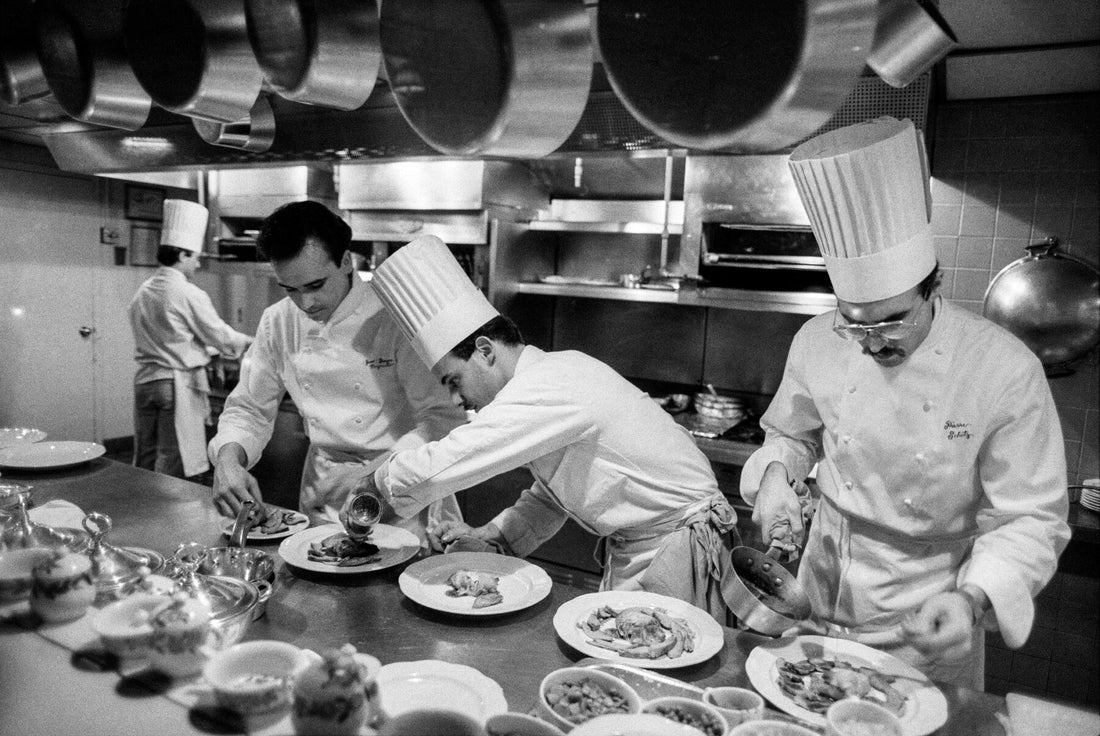
The Kitchen Hierarchy: Positions in the Kitchen
Share

In modern days like today, hospitality is a job sought upon by many due to the stigma that has proudly been broken. As compared to the past, having a job as a Chef was not seen as luxurious as the rest because of the stereotypical thinking that Chef simply only do one thing as that is Cook. Fortunately, this ever-growing and ever-expanding industry now employ over hundreds of people every year to support its flourishing career opportunity (that’s often overlooked by many)!
Unlike what most people think, getting your hands on a Culinary Arts Certificate can be tough, and even in some cases, it can even be pricer than the more common certificates out there. From this, the people who are able to successfully obtain this Certificate and end up working in a kitchen are considered as one of the best.
Just like in any other job, there are different roles and positions that are achievable in the kitchen. These roles hold different levels of responsibility to ensure that the service and the kitchen are kept running smoothly and orderly. This team is called The Kitchen Brigade or Brigade De Cuisine. The size of the Brigade can vary depending on the size of the restaurant/ kitchen. An example will be if you were to work in a smaller kitchen it’s most likely that there won’t be a person for every position. With this said, let’s dive into the different positions of the Kitchen Brigade!
The different positions in a Kitchen Brigade
There are many positions in this hierarchy, and each one holds an important role in the overall function of the kitchen. The 6 main and most common positions of the kitchen hierarchy are
The Executive chef sits at the top of the kitchen hierarchy; their role is primarily managerial (this means that they’re normally in charge of overseeing and training personnel, planning menus, managing the culinary budget and sometimes purchasing). Executive chefs tend to manage kitchens at multiple outlets and surprisingly do minimal cooking. This position typically only applies to larger chains or restaurants.
In smaller chains, the top of the kitchen hierarchy will then be the Chef de Cuisine (Head Chef). Similar to an executive chef, this position overlooks all aspects of the kitchen. Again, this role is also primarily managerial and they are typically responsible for creating menus, controlling the kitchen costs, and managing the staff. From this, some Head Chefs prefer to leave the cooking to the Sous Chef (Deputy Chef) but some do prefer to be more involved to help out in the kitchen’s cooking!
The Deputy Chef or better known as Sous Chef is second-in-command in the kitchen. The number of Sous Chefs in a restaurant can depend on its management. It is indeed possible for there to be more than one Sous Chef due to the fact that this role can sometimes overlap with the role of the Head Chef. However, the Sous Chef will generally remain hands-on and will be in charge of the kitchen’s day-to-day activities and cooking.
Chef de Partie, otherwise known as the Station Chef, arguably has the most critical role in the kitchen. These Chefs are in charge of cooking the food that would then be served to the customers. What most people don’t know is that there are multiple positions that the Chef de Partie are responsible for. Every chef can be working for the different chefs in the kitchen for the different food they are in charge of! The different chefs can each be cooking dishes like fish, vegetables, or even dessert.
Everyone has to start somewhere. The Commis Chef work with Chef de Partie to learn more about the kitchen environment. The Junior Chef typically have just completed their school or training and are beginning to work and familiarise themselves with the hands-on culinary aspect of things! The Junior Chefs job varies from assisting the other chefs to learn new techniques to simply trying to learn the in and outs of the kitchen.
Kitchen Porters normally assist with basic preparations of food due to the fact that they don’t commonly have formal training. These basic food preparations can involve peeling potatoes, grating cheese or even just have cleaning duties
At the end of the day, everyone plays an important role in making sure that everything in the kitchen are kept running smoothly and orderly!
